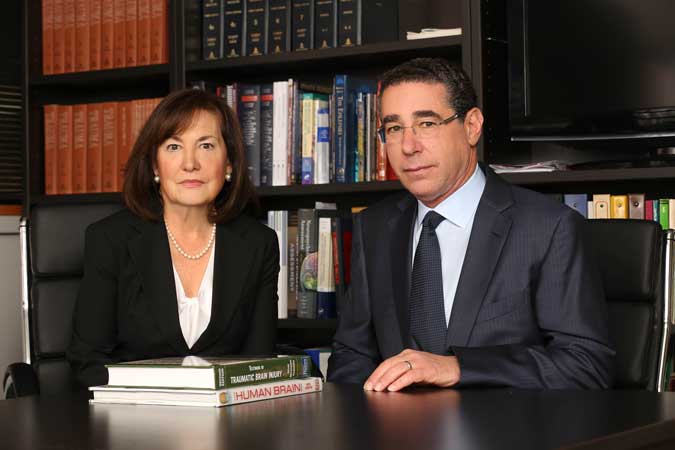The Little Bird Who Forgot How To Fly
Caring For A Child With Traumatic Brain Injury

Why We Created This Video
While the symptoms experienced by children who have sustained a traumatic or acquired brain injury are similar to adults, the functional impact upon the child and his or her family is significantly different.
These injuries affect the entire trajectory of a child’s life and changes the family dynamic. Children are growing and learning, and the cognitive impairments may not immediately be recognized because their brains are still developing. As the child ages, and is relying on more complex intellectual skills, these deficits may become apparent. These impairments interfere with the ability to learn new information and function at a higher, more independent level. A child’s brain injury will affect his/her ability to be successful in school, obtain or retain a job, and adapt to the increased demands of adult life.
We created this video to shed light on how these injuries affect children and their parents. It affects their ability to remember old skills and learn new ones. Their parents, who may be looking forward to their children maturing, and growing into independent adults, find themselves confronted by the real possibility that their child may need their support and assistance long past adulthood.
Although families understand the importance of the brain, very few families comprehend the consequences of a brain injury. Often, family members observation of physical improvement leads them to unrealistic expectations regarding cognitive, emotional, and behavioral recovery. Parents may believe that their children are not trying hard enough to recover their old level of independence and grow frustrated. Rather these children require rehabilitation, remediation, accommodations, and support to relearn what they’ve lost and to move forward in their lives. This may be a difficult adjustment for the entire family and parents must learn to reevaluate their expectations for their child. This is especially true when there is damage to the frontal and temporal lobes of the brain which will control a child’s ability to learn.
Parents will find that their child looks the same as they did prior to the injury but have a new and different attitude, personality, and may become depressed and anxious. A previously happy-go-lucky child may regress and become sullen, immature, and uncooperative.
Parents must learn how to best help their child regain a level of independence, relearn skills, acquire new knowledge, and adopt coping skills to reach a more significant level of independence. The entire family must learn how to change their outlook. One person’s brain injury has devastating effects on the entire family constellation, with parents functioning as perpetual caretakers. They may worry about what will happen to their child once they no longer can provide that assistance.
We hope this video will assist in communicating the difficulties both children and their parents themselves confront.
Brain Injury and Children–Resources:
General Information
- Brain Injury in Children-What to Expect
- Children with Traumatic Brain Injury: A Parents’ Guide
- Children with TBI
- CDC A Fact Sheet for Parents
School Resources for Parents, Teachers and School Administrators
- BrainSTEPS-Strategies Teaching Educators, Parents, and Students
- Special Education and Brain Injury
- Classroom Interventions for Students with Traumatic Brain Injuries
- Traumatic Brain Injury and Teens: Information for School Administrators
Sports
Pediatric Neuropsychology
Pediatric Medical Management
- CDC Pediatric mTBI Guideline
- Management of Pediatric Severe Traumatic Brain Injury: 2019 Consensus and Guidelines
- Pediatric Head Trauma: A Review and Update
- Severe Pediatric TBI Guidelines
About Shana & Michael

Shana De Caro and Michael V. Kaplen.
Shana De Caro and Michael V. Kaplen are personal injury attorneys dedicated to assisting brain injury survivors navigate the road after traumatic brain injury. With extensive experience in representing victims of brain trauma, they are prepared to guide brain injury victims through the legal obstacles they will confront and recover full and fair compensation for the harms and losses their clients have suffered as a result of someone’s careless or negligent conduct.
De Caro & Kaplen, LLP is a New York personal injury law firm focused on representing victims of brain injury. Our attorneys have the knowledge and skill to make a crucial difference in the lives of brain injury victims. Specialized brain injury cases require a law firm with the experience and proficiency to assist brain injury victims through the most difficult legal challenges in their lives following a traumatic brain injury.
Shana and Michael are nationally recognized for their advocacy on behalf of brain injury victims. Shana is Vice Chair of the Brain Injury Association of America . Michael is a three-term past president of the Brain Injury Association of New York State and current Chair of the New York State Traumatic Brain Injury Services Coordinating Council. They have been designated Preferred Attorneys for the Brain Injury Association of America.
Their opinions on traumatic brain injury are frequently sought by The New York Times, USA Today, The Daily News, Fox News Network, and others. They are widely respected throughout the legal, medical, and judicial communities. The two regularly lecture lawyers, medical professionals, and judges, across the nation on how traumatic brain injury clients and cases should be evaluated and handled in and out of the courthouse.
Caring For A Child With Traumatic Brain Injury
[embedyt] https://www.youtube.com/watch?v=3nWYPLu9kNg[/embedyt]
[tcb-script](function(d, s, id) {var js, fjs = d.getElementsByTagName(s)[0];if (d.getElementById(id)) return;js = d.createElement(s); js.id = id;js.src = ‘https://connect.facebook.net/en_US/sdk.js#xfbml=1&version=v3.2&appId=2225531204353413&autoLogAppEvents=1’;fjs.parentNode.insertBefore(js, fjs);}(document, ‘script’, ‘facebook-jssdk’));[/tcb-script]
Read “The Little Bird Who Forgot How To Fly”
Use the arrows on the right and left to move between pages. Text will appear below each image.
[slide-anything id=”7314″]
Why We Created This Video
 While the symptoms experienced by children who have sustained a traumatic or acquired brain injury are similar to adults, the functional impact upon the child and his or her family is significantly different.
While the symptoms experienced by children who have sustained a traumatic or acquired brain injury are similar to adults, the functional impact upon the child and his or her family is significantly different.
These injuries affect the entire trajectory of a child’s life and changes the family dynamic. Children are growing and learning, and the cognitive impairments may not immediately be recognized because their brains are still developing. As the child ages, and is relying on more complex intellectual skills, these deficits may become apparent. These impairments interfere with the ability to learn new information and function at a higher, more independent level. A child’s brain injury will affect his/her ability to be successful in school, obtain or retain a job, and adapt to the increased demands of adult life.
We created this video to shed light on how these injuries affect children and their parents. It affects their ability to remember old skills and learn new ones. Their parents, who may be looking forward to their children maturing, and growing into independent adults, find themselves confronted by the real possibility that their child may need their support and assistance long past adulthood.
Although families understand the importance of the brain, very few families comprehend the consequences of a brain injury. Often, family members observation of physical improvement leads them to unrealistic expectations regarding cognitive, emotional, and behavioral recovery. Parents may believe that their children are not trying hard enough to recover their old level of independence and grow frustrated. Rather these children require rehabilitation, remediation, accommodations, and support to relearn what they’ve lost and to move forward in their lives. This may be a difficult adjustment for the entire family and parents must learn to reevaluate their expectations for their child. This is especially true when there is damage to the frontal and temporal lobes of the brain which will control a child’s ability to learn.
Parents will find that their child looks the same as they did prior to the injury but have a new and different attitude, personality, and may become depressed and anxious. A previously happy-go-lucky child may regress and become sullen, immature, and uncooperative.
Parents must learn how to best help their child regain a level of independence, relearn skills, acquire new knowledge, and adopt coping skills to reach a more significant level of independence. The entire family must learn how to change their outlook. One person’s brain injury has devastating effects on the entire family constellation, with parents functioning as perpetual caretakers. They may worry about what will happen to their child once they no longer can provide that assistance.
We hope this video will assist in communicating the difficulties both children and their parents themselves confront.
Brain Injury and Children–Resources:
General Information
- Brain Injury in Children-What to Expect
- Children with Traumatic Brain Injury: A Parents’ Guide
- Children with TBI
- CDC A Fact Sheet for Parents
School Resources for Parents, Teachers and School Administrators
- BrainSTEPS-Strategies Teaching Educators, Parents, and Students
- Special Education and Brain Injury
- Classroom Interventions for Students with Traumatic Brain Injuries
- Traumatic Brain Injury and Teens: Information for School Administrators
Sports
Pediatric Neuropsychology
Pediatric Medical Management
- CDC Pediatric mTBI Guideline
- Management of Pediatric Severe Traumatic Brain Injury: 2019 Consensus and Guidelines
- Pediatric Head Trauma: A Review and Update
- Severe Pediatric TBI Guidelines
About Shana & Michael

Shana De Caro and Michael V. Kaplen.
Shana De Caro and Michael V. Kaplen are personal injury attorneys dedicated to assisting brain injury survivors navigate the road after traumatic brain injury. With extensive experience in representing victims of brain trauma, they are prepared to guide brain injury victims through the legal obstacles they will confront and recover full and fair compensation for the harms and losses their clients have suffered as a result of someone’s careless or negligent conduct.
De Caro & Kaplen, LLP is a New York personal injury law firm focused on representing victims of brain injury. Our attorneys have the knowledge and skill to make a crucial difference in the lives of brain injury victims. Specialized brain injury cases require a law firm with the experience and proficiency to assist brain injury victims through the most difficult legal challenges in their lives following a traumatic brain injury.
Shana and Michael are nationally recognized for their advocacy on behalf of brain injury victims. Shana is Vice Chair of the Brain Injury Association of America . Michael is a three-term past president of the Brain Injury Association of New York State and current Chair of the New York State Traumatic Brain Injury Services Coordinating Council. They have been designated Preferred Attorneys for the Brain Injury Association of America.
Their opinions on traumatic brain injury are frequently sought by The New York Times, USA Today, The Daily News, Fox News Network, and others. They are widely respected throughout the legal, medical, and judicial communities. The two regularly lecture lawyers, medical professionals, and judges, across the nation on how traumatic brain injury clients and cases should be evaluated and handled in and out of the courthouse.